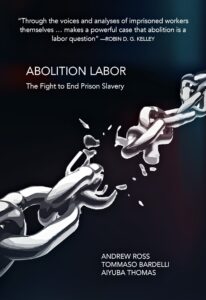Podcast: Play in new window | Download
USPS: Concerns With Louis Dejoy And Election Integrity
Free elections can too easily turn into hollow formalities when coercion, manipulation, or biased governance replace voter choice and participation. The United States Postal Service has historically been one of the most trusted government institutions in the United States, with a strong reputation for reliability and nonpartisanship. Until now.
Louis DeJoy, a prominent Trump donor and former logistics executive, was appointed as Postmaster General in May 2020, just months before the 2020 presidential election. His tenure has been marked by a series of controversial reforms, including slowing mail delivery, removing mail sorting machines, reducing post office operating hours, and limiting overtime for postal workers. These changes have triggered widespread alarm, given the heightened dependence on mail-in voting during the COVID-19 pandemic.
Despite public outcry and congressional investigations, DeJoy continues to oversee an agency crucial to the functioning of our democracy. With the 2024 election on the horizon and the ongoing reliance on mail-in ballots—particularly in swing states—the stakes are high. Voters in rural areas, the elderly, and people with disabilities, often rely on it to cast their ballots. Any disruptions could disproportionately impact these communities and undermine public confidence in the electoral process.
We examine the potential impacts of delayed ballots, changes in USPS service standards, and the wider implications for voter turnout and trust in the system.
Guest – Chuck Zlatkin, legislative director of the New York Metro Area Postal Union.
—-
Sending a big thank you to station KKFI for their generous donation bringing us closer to our fundraiser goal. Please consider helping us reach our fundraiser goal. We’re getting close.
—-
Abolition Labor: The Fight To End Prison Slavery
Operating in the secrecy of the nation’s more than 1,800 prisons, a kind of shadow slave culture is being fostered. Few Americans are aware of the exploitative and pervasive practice of forced prison labor. The 13th amendment to the US Constitution abolished slavery, but it made one exception: prison labor.
Prisoners are forced to work with minimal or non-existent wages, and often with no labor protections. Understanding the scope and implications of forced prison labor is crucial for anyone concerned with social justice and equity. It calls for a re-examination of our treatment of incarcerated persons and for alternatives that promote fairness for everyone, regardless of their legal status. By shining a light on this issue, we can advocate for reforms that prioritize rehabilitation over punishment and strive towards a more just and humane criminal justice system. A new book, Abolition Labor: The Fight To End Prison Slavery, provides an eye-opening overview of the extent of this problem.
Guest – Andrew Ross is a renowned social activist, author, and Professor of Social and Cultural Analysis at New York University, where he also directs the Prison Research Lab. Andrew has contributed to prominent publications like The Guardian, The New York Times, and The Nation. He has authored or edited over twenty-five books, with the recent work, Abolition Labor, co-authored with Aiyuba Thomas and Tommaso Bardelli.
Guest – Aiyuba Thomas recently earned his M.A. from NYU’s Gallatin School of Individualized Study and is an affiliate of the NYU Prison Research Lab. He currently serves as project manager for the Movements Against Mass Incarceration’s archival oral history project at Columbia University. There, he documents the experiences and challenges faced by those affected by the criminal justice system. His firsthand perspective and his extensive knowledge on the subject makes him a powerful voice in the conversation of abolishing forced prison labor.
——————–




